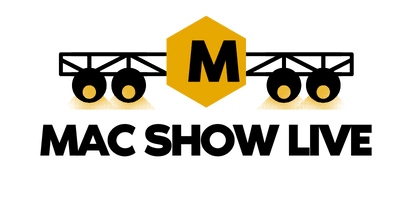What Are the Latest Innovations in AI-Powered Recruitment Tools for UK Businesses?

The recruitment industry is undergoing rapid transformation, particularly in the UK, thanks to advances in artificial intelligence (AI). Over the past few years, AI-powered recruitment tools have revolutionized how companies attract, evaluate, and hire talent. These solutions are designed to optimize the hiring process, reduce time to hire, and enhance the overall candidate experience. Let's delve into the latest innovations that are driving this change.
Revolutionizing Candidate Sourcing with AI
In the competitive world of talent acquisition, finding the right candidates quickly and efficiently is crucial. AI-powered candidate sourcing tools are leading the way by automating the search and match process. These tools analyze vast amounts of data from various sources, such as online job boards, social media platforms, and employee databases, to identify potential candidates who fit specific job descriptions.
Sujet a lire : How Can UK Banks Utilize AI for Risk Management and Compliance?
For instance, machine learning algorithms can scan thousands of profiles in real time, comparing them against the skills and experience required for a role. This significantly reduces the time spent manually sifting through applications, allowing recruiters to focus on engaging with the top talent. Moreover, AI can provide insights into candidate behavior and preferences, enabling a more personalized approach to talent outreach.
AI-driven candidate sourcing tools also help businesses uncover passive candidates—those not actively looking for a job but open to new opportunities. By leveraging predictive analytics, these tools can identify candidates who are likely to be a good match for the company culture and role, increasing the chances of successful hiring.
A lire en complément : How Are UK Retailers Using AI to Optimize Shelf Stocking?
Enhancing Candidate Screening with Predictive Analytics
Once potential candidates are identified, the next step is candidate screening. Traditional screening methods are often time-consuming and prone to human bias. AI-powered screening tools use predictive analytics to assess candidates' suitability more accurately and objectively.
These tools analyze a wide range of factors, including skills, work history, education, and even social media activity, to predict how well a candidate will perform in a given role. By using data-driven approaches, recruiters can make more informed decision making and reduce the risk of bad hires.
Furthermore, AI can enhance the candidate experience by providing immediate feedback and updates throughout the recruitment process. For example, AI chatbots can answer candidate inquiries, schedule interviews, and provide status updates, ensuring that candidates are well-informed and engaged.
AI-driven screening tools also help in eliminating unconscious bias. By focusing purely on candidate qualifications and experience, these tools promote a fairer and more inclusive hiring process. This not only improves the diversity of the workforce but also enhances the company's reputation as an equal opportunity employer.
Streamlining the Recruitment Process with AI-Powered Tools
AI-powered recruitment tools are transforming every stage of the recruitment process, from initial candidate sourcing to final hiring decisions. One of the most significant advancements is the integration of applicant tracking systems (ATS) with AI.
An AI-enhanced ATS can automate repetitive tasks, such as resume parsing, interview scheduling, and follow-up communications. This not only saves time but also ensures a more organized and efficient recruitment workflow. Additionally, AI can provide real-time analytics and insights, helping recruiters track progress and identify areas for improvement.
AI tools also enable recruiters to create more effective job descriptions. By analyzing data on past successful hires and industry trends, AI can suggest the most effective keywords and phrases to attract the right talent. This ensures that job listings are appealing and accessible to a diverse pool of candidates.
Moreover, AI-powered tools can analyze interview performance and provide recommendations for candidate selection. For example, AI can evaluate speech patterns, body language, and responses to assess a candidate's fit for the role. This provides an additional layer of insight that complements human judgment.
Improving Decision Making with Data-Driven Insights
The true power of AI in recruitment lies in its ability to generate actionable insights from vast amounts of data. By leveraging data-driven approaches, recruiters can make more informed decision making at every stage of the hiring process.
Predictive analytics, for instance, can identify trends and patterns that might not be immediately apparent to human recruiters. This allows companies to anticipate talent needs, identify potential skills gaps, and develop targeted recruitment strategies.
AI can also help businesses measure the effectiveness of their recruitment efforts. By analyzing metrics such as time to hire, candidate satisfaction, and retention rates, recruiters can continuously refine their processes to achieve better outcomes. This continuous improvement loop is essential for staying competitive in the ever-evolving recruitment landscape.
Furthermore, AI enables real-time decision making. With access to up-to-date data and analytics, recruiters can make swift and accurate decisions, ensuring that candidates are not left waiting and that top talent is secured quickly.
The Future of Talent Management with AI
As AI continues to evolve, its impact on talent management will only grow. Future innovations are likely to focus on further enhancing the candidate experience and improving the efficiency of the recruitment process.
One exciting development is the use of machine learning to predict employee performance and retention. By analyzing past performance data, AI can identify the characteristics and behaviors that correlate with high performance and long-term retention. This allows businesses to tailor their talent strategies to attract and retain the best employees.
AI is also expected to play a more significant role in developing talent within organizations. For instance, AI can identify skills gaps and recommend training and development programs to address them. This ensures that employees are continuously learning and growing, driving business success.
Another area of potential growth is the integration of AI with other emerging technologies, such as virtual reality (VR) and augmented reality (AR). These technologies can create immersive recruitment experiences, allowing candidates to virtually explore the workplace and get a feel for the company culture before making a decision.
In conclusion, AI-powered recruitment tools are transforming how UK businesses attract, evaluate, and hire talent. By automating repetitive tasks, enhancing candidate screening, and providing data-driven insights, AI is helping recruiters make more informed decisions, reduce time to hire, and improve the candidate experience.
The latest innovations in AI-powered recruitment tools, such as predictive analytics, machine learning, and real-time candidate sourcing, are setting the stage for a more efficient and effective hiring process. As AI continues to evolve, its impact on talent acquisition and management will only grow, offering companies a competitive edge in the ever-evolving recruitment industry.
By embracing these AI-driven solutions, businesses can not only improve their recruitment outcomes but also build a more diverse, inclusive, and high-performing workforce. The future of recruitment is here, and it is powered by AI.
